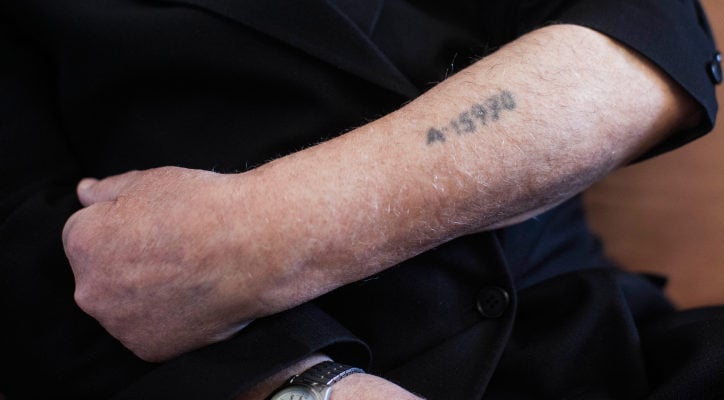After potential auction of item sparks backlash throughout Jewish world, Holocaust museum determines that tattoo kit likely dates back to 1949 — after the genocide ended.
By Lauren Marcus, World Israel News
Several months after the potential auctioning of an “Auschwitz Tatto Kit” sparked controversy in Israel and throughout the Jewish world, Yad Vashem-World Holocaust Remembrance Center said that the item, allegedly used on Jewish prisoners in the Auschwitz concentration camp, is likely a fraud.
In November 2021, Jerusalem-based auction house Tzolman announced that it would be selling tattoo “stamps” (numbered needles) used by Nazis to tattoo concentration camp inmates.
At the time, Rabbi Menachem Margolin, chairman of the European Jewish Association, wrote in an open letter addressed to Justice Minister Gideon Sa’ar that the “despicable sale” must be stopped.
“I appeal to you personally to do everything in your power to prevent the humiliation of the victims and the sale of stamps that were used to burn the arms of millions of European Jews,” Margolin wrote.
“The trade of such sensitive items cannot be allowed.”
An Israeli court issued an order preventing the auction from proceeding and gave permission to Yad Vashem to authenticate whether in fact the tattoo kit was authentic.
If so, Israel would consider compensating the owner for the item and then donate it to the Holocaust museum, rather than allowing the sale to move forward.
But according to a five-page report by Yad Vashem obtained by Reuters, the tattoo kit likely dates back to 1949 – years after all concentration camps were liberated and World War II had ended – and it was probably used to brand livestock, not Holocaust victims.
Yad Vashem determined that the kit “had clearly not been used regularly” and was cleaned before making its way to Tzolman’s Auction House.
Additionally, because of the logistical challenges of this particular type of tattoo stamp, dozens of Jews at the most were marked with devices such as the one inspected by Yad Vashem.
If the stamp was used on people, which is unclear, it is far more likely that it marked political prisoners or captured enemy troops than Jews.
Meir Tzolman, head of the auction house who said he expected the gruesome artifact to sell for between $30,000 and $40,000, declined to speak with Reuters about Yad Vashem’s findings.
He insisted that the stamp had been certified as originating from Auschwitz, but did not share any documentation supporting that assertion with Reuters.





